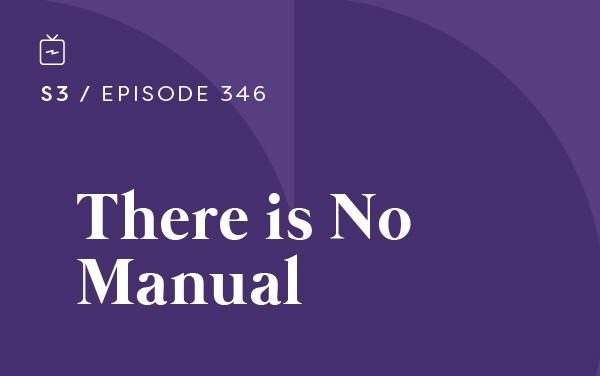
by Kris Oyen | Oct 4, 2021 | Podcast
Podcast: Play in new window | Download
Subscribe to the Recovery Elevator Podcast Apple Podcasts | | More
Episode 346 – There is no manual
Today we have Kathryn. She us 58, from North Dakota, and took her last drink on February 19, 2002.
Highlights from Odette
There is no manual for recovery. We have tools, guidance, but no guaranteed formula for success. Learning to manage that uncertainty can be challenging, but it’s normal. Be gentle with yourself and others.
Exact Nature exactnature.com Code: RE20
[07:18] Kris welcomes Kathryn Burgum, the First Lady of North Dakota. Kathryn has over 19 years of sobriety.
Kathryn’s first drink was at age 8. There was lots of alcohol in her household and her parents were regular drinkers. In high school, Kathryn struggled with anxiety and depression; drinking was her nirvana because it gave her some relief. She had her first blackout in high school, and they continued for twenty years.
Kathryn experienced many consequences due to her drinking; the loss of self-respect was at the top of her list. Getting a DUI pushed her to begin recovery.
Kathryn made several deals with herself about regulating her drinking. She never kept those promises, because if she thought about drinking, she did. The only choice she had was to start drinking …. In the end, she lost the choice about drinking.
As Kathryn’s drinking progressed, she was hung over every day. She was unable to control her drinking. When asked if she should be driving, she would respond that she was fine, because she didn’t want people to think she had a problem with alcohol.
Kathryn worked in HR and drug tested employees. When she got a DUI, it was published in the local newspaper. Someone blew it up and posted it at work. The shame kept her from admitting her problem. She didn’t want to ask for help because she was concerned about what others would think.
Kathryn recognized she was suicidal almost every time she drank; she had undiagnosed depression.
As a result of her DUI, she had to undergo a mandatory evaluation and went to outpatient treatment that was unsuccessful. She went to Mayo Clinic for ten days and stayed sober for two years. Over a period of 8 years, she quit and relapsed several times.
Kathryn’s turning point came when she was walking and asked, “Is there anybody out there? If there is, I need help.” She has been sober ever since. Slowly recovery became her life. She found a community, began feeling better, and engaged a recovery coach. She credits recovery with saving her life.
Kathryn now takes medication for her depression, reads meditations daily and connects with her God.
When her husband, Gov. Doug Burgum, announced that he wanted to run for governor, she had some concerns. They had candid conversations about boundaries during the campaign.
Kathryn made a conscious decision to talk about her recovery because of the opioid crisis and it became a platform she and her husband share. Recovery Reinvented is an annual free conference.
Every week Kathryn has an opportunity to help someone who is struggling with addiction. Helping others helps her stay sober. After 8 years of relapse, she was losing hope. Through faith she knows there is always hope for sobriety and recovery.
Recovery Reinvented 2021 is on 10/25/21. Register to attend in person or online. www.recovery reinvented.com.
Kris’s Summary
What could your voice do? We don’t know the impact that comes with sharing our experience. I’m over the stigma; I am here to grow.
First Lady Kathryn Burgum can be found: Facebook (@FirstLadyND & @RecoveryND), Twitter (@FirstLadyND & @Recovery_ND), and Instagram (@firstladynd). Prior Recovery Reinvented speakers, award recipients, and segments can be found at www.youtube.com/recoveryreinvented.
Sponsor: Exact Nature exactnature.com Code: RE20
Upcoming events, retreats, and courses:
- You can find more information about our events
Resources
Connect with Cafe RE – Use the promo code OPPORTUNITY to waive the set-up fee.
Recovery Elevator YouTube – Subscribe here!
Sobriety Tracker iTunes
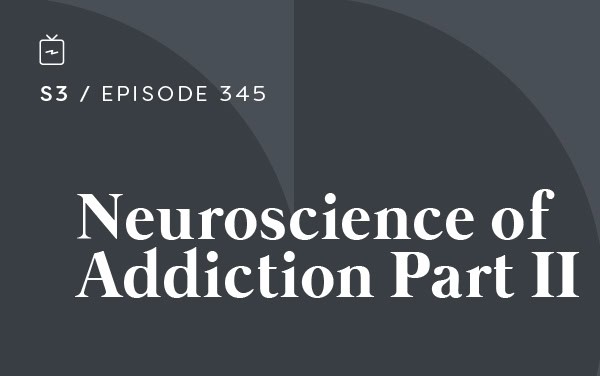
by Kris Oyen | Sep 27, 2021 | Podcast
Podcast: Play in new window | Download
Subscribe to the Recovery Elevator Podcast Apple Podcasts | | More
Episode 345– The Neuroscience of Addiction Part II
Today we have Stacy Jo, she is 34 years old, from Oregon and took her last drink on March 6, 2020.
Highlights from Paul
Paul wants to know your interest in a alcohol-free Ukulele 101 course. If you are interested please email info@recoveryelevator.com.
Paul provides part 2 of highlights of a podcast with Rich Roll speaking with Dr. Anna Lembke. Rich Roll Podcast: https://www.youtube.com/watch?v=jziP0CEgvOw.
Dr. Lembke talks about how it’s a known fact that when we are in our addiction, we can’t accurately see the consequences or what’s taking place. With abstinence, we can look back and say, OH MY
The interview focuses a lot on dopamine and why addiction has been on the rise for 30 years. Being smart or highly educated doesn’t make you immune to addiction, in fact, it might even backfire because you think you know everything. More than 1/2 the world’s deaths, under the age of 50, are attributable to addiction. Rates of alcoholism have gone up 50% for those aged 65 and up from the late 90’s to today and have gone up 80% in women. Traditionally the rates for alcoholics were 5:1 for men to women. With Millennials, it’s now 1:1. There are more burdens on women now than ever.
Dr. Lemke recommends a 30 day dopamine fast. But a huge warning of withdrawals for alcohol and benzodiazepines. How to do this? Well, we’ve got 345 episodes now on the HOW, but the trick is to go into the pain. Head into the storm (episode 341) and Forgive yourself.
Exact Nature exactnature.com Code: RE20
[12:41] Stacy Jo took her last drink on March 6, 2020. She lives in Eugene, OR. with her partner of 15 years. Her primary hobby is anything that has to do with yarn. She has worked in the restaurant industry for 20 years until the pandemic hit, she recently was just at the University of Oregon.
Around the age of 20, after a breakup and miscarriage, Stacy Jo feels there was a switch in her drinking. That was the same time her service industry career normalized and it all went hand in hand.
In 2018 Stacy Jo started some serious attempts to quit drinking but it wasn’t until the beginning of the pandemic in 2020 that she was able to get good footing.
Stacy Jo joined Café RE when she was around 4 months sober and says she did it as a reward for herself.
She says her partner hated her drinking, and that it became a pretty big division between the two of them. Stacy Jo also got a Driving While Ability Impaired (right below a DUI) when she was 28.
She feels like she slept the 1st three months of sobriety. She treated herself like a toddler and allowed herself to sleep and snack.
Stacy Jo is grateful for the pandemic and her restaurant shutting down. It allowed her to get away from the normalcy that is part of the service industry and to have the space to get on solid ground.
She does not get cravings any longer, but says she is not so cocky to say that she won’t again.
Odette’s Summary
Odette reminds us that change starts with us. Recovery is our responsibility.
Remember you are not alone and together is always better.
Sponsor: Exact Nature exactnature.com Code: RE20
Upcoming events, retreats, and courses:
- You can find more information about our events
Resources
Connect with Cafe RE – Use the promo code OPPORTUNITY to waive the set-up fee.
Recovery Elevator YouTube – Subscribe here!
Sobriety Tracker iTunes
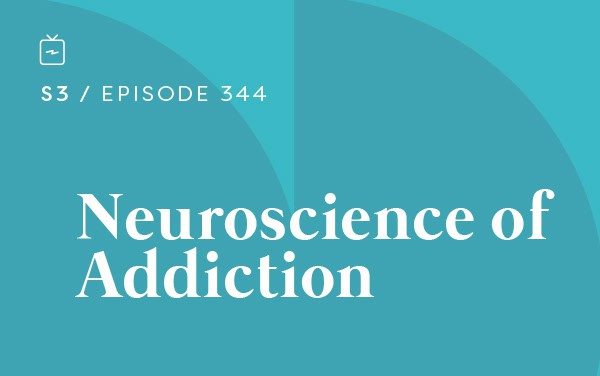
by Kris Oyen | Sep 20, 2021 | Podcast
Podcast: Play in new window | Download
Subscribe to the Recovery Elevator Podcast Apple Podcasts | | More
Episode 344– The Neuroscience of Addiction
Today we have Bill. He is 61, from Alabama, and took his last drink on April 29, 2021.
Events. https://www.recoveryelevator.com/events/ Ditch the Booze starts 9/21 at 8 PM EST.
Highlights from Paul
Paul provides part one of highlights of a podcast with Rich Roll speaking with Dr. Anna Lembke. Rich Roll Podcast: https://www.youtube.com/watch?v=jziP0CEgvOw.
“Persons with severe addictions are among those contemporary prophets that we ignore to our own demise for they show us who we truly are.” Dr. Lembke says that drinking is not a choice but seeking help for an addiction is a choice.
The interview focuses a lot on dopamine and why addiction has been on the rise for 30 years. American society and economy are focused on an insatiable pursuit of pleasure. Today’s marketers target the dopamine system; thus, we all struggle to find homeostasis. Addiction can show up as alcohol, social media, food, etc. Addiction is a low-grade discomfort we all have as humans. She believes we are all wired to seek pleasure and avoid pain, which works in an environment of scarcity, not our current state of abundance.
Paul reminds us we can’t study or think our way out of addiction. Community is key!
Exact Nature exactnature.com Code: RE20
[11:43] Bill took his last drink on April 29, 2021. He enjoys hiking, movies, sports, windsurfing, reading, and spending time with family and friends.
Bill started drinking as a teenager. He knew at spring break 30 years ago that he was a problem drinker. He drank and got buzzed every five years but wasn’t addicted. Thirty years later, Bill’s wife left, and he started drinking liqueur in the evening. He slowly became addicted, and he drank every night.
When Bill hit rock bottom, he found himself broke, living in an extended stay hotel. He scraped the floor of his room and his car to get enough money to buy a few shots.
In 2020, he joined Recovery Elevator and was a lurker until 2021.
Bill still has cravings and practices “doing 30 things” to keep him from drinking. If the cravings continue, he goes to bed. Loneliness is Bill’s biggest trigger. Ice cream and cookies also get him through.
Bill said everything got better when he stopped drinking. He is back in the gym and loves waking up without a hangover. His medications work better. The community of Café RE is crucial to Bill, and he is led and inspired by others in RE. He loves being of service and is grateful to the suggestions of others that helped him when he wanted to drink.
Bill credits Tim Grover’s books, Relentless and Winning, with changing his mindset. His takeaway was getting ‘obsessed’ with sobriety. Meditation helps his anxiety and cravings.
A friend of Bill’s told him his greatest flaw was that he didn’t like himself. He described how the “I suck” mentality brought him down. Bill made considerable strides in self-love since he quit drinking. He listens to a podcast called Unbeatable Mind and has learned to say “I love you” to himself daily, over and over. Bill believes having an accountability partner is critical to his success.
Odette’s Summary
Odette shared about a Café RE member who shared at the Bozeman retreat. The person said, ‘for a long time, I thought I didn’t matter, that my existence didn’t matter. I recognize that I matter, I belong, and I can make an impact.’
Odette reminds us, we all matter. We help each other become better and to heal. We remind each other of our value. The power of community is vital because it is rooted in love and non-judgment and a firm belief that we are whole. We are whole, even when we stumble.
Sponsor: Exact Nature exactnature.com Code: RE20
Upcoming events, retreats, and courses:
- You can find more information about our events
Resources
Connect with Cafe RE – Use the promo code OPPORTUNITY to waive the set-up fee.
Recovery Elevator YouTube – Subscribe here!
Sobriety Tracker iTunes
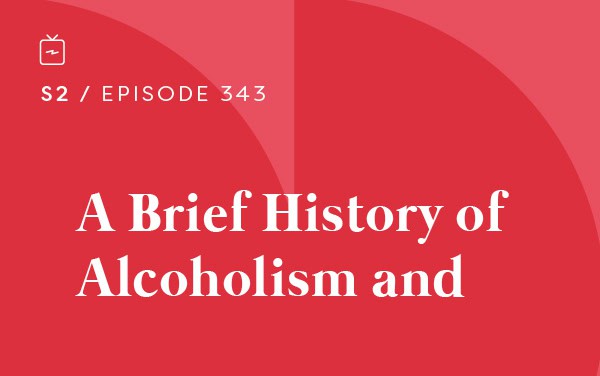
by Kris Oyen | Sep 13, 2021 | Podcast
Podcast: Play in new window | Download
Subscribe to the Recovery Elevator Podcast Apple Podcasts | | More
Episode 343 – A Brief History of Alcoholism and Treatment
Today we have Charlie. He is 35, from Missouri and took his last drink on July 7, 2020.
Events. https://www.recoveryelevator.com/events/ Ditch the Booze 9/21 ; Regionals 11/12-14; Costa Rica (1/15-23). https://www.recoveryelevator.com/costarica/
Highlights from Paul
Addiction is a modern phenomenon. Alcohol has been around for centuries. Early “treatment” of alcoholics included being jailed, tortured, and often executed for being possessed by demons. As treatment has evolved, we are moving toward FLOW states. Our mental energies are redirected from addiction toward creating healthier neural connections. In the 1930’s, alcoholism was classified as a fatal medical condition. In 1935 Bill W co-founded AA. In 1949 the Hazelden Foundation was born, thus creating our modern-day rehab and treatment structures. https://www.cornerstoneofrecovery.com/a-history-of-addiction-and-addiction-treatment/
Fortunately, people are recovering from alcoholism because the stigma is softening, and people are recognizing this is more a disease of disconnection and lack of community. Check out this video of the Recovery Elevator Bozeman retreat. https://www.youtube.com/watch?v=vFoqj3xeFUI
Exact Nature exactnature.com Code: RE20
[16:09] Charlie took his last drink on July 7, 2020He has been to 54 different treatment He just wrote a memoir. He writes, blogs, and enjoys experiencing life.
Charlie’s mom passed away when he was 13. He didn’t know how to handle his emotions, so he turned to substances. The emotional damage compounded over the years.
Charlie’s drinking was a result of unresolved grief and trauma, emotional damage from a succession of stepmothers, and lack of success as an actor. Charlie drank and used drugs. In 2017, his health became an issue. He started exploring detox and learned about alcoholism. In 2019 he was in his 15th IOP program, but still wasn’t surrendering.
He had to go back to Lincoln to address some legal issues. He relapsed several times; he was emotionally and spiritually bankrupt. In June of 2020, he was receptive to love and faith from his higher power. He decided to implement what he learned at the facilities he experienced. He relapsed again, but in July he realized alcohol wasn’t working for him.
Charlie maintained a job through most of his addiction which provided insurance and access to treatment. He was privileged and knows he had access to therapists and treatment modalities many don’t. He did build up a lot of medical debt.
Charlie overcomes cravings or negative emotions with music, cleaning, calling friends, visiting family. He also journals and meditates. He has learned to listen to his emotions and ask, what do you need?
Cognitively Charlie processed his trauma in treatment. He didn’t process the trauma emotionally or spiritually until he had been sober for a few months. Once he processed the trauma, he learned to love himself and heal the emotional trauma. His relationships with his dad and his sister evolved in an amazing way.
Charlie began writing in 2018 but continued drinking until 2020. His book has provided some built-in accountability. https://www.amazon.com/At-Least-Not-Frog-Alcoholism-ebook/dp/B09B5MFT1X/ref=cm_cr_arp_d_pb_opt?ie=UTF8
Charlie is a fan of gratitude list and believes that gratitude+humility=happiness. He loves travel from beach to mountains and is grateful he can remember his adventures.
Odette’s Summary
Grateful Snacking is a company that makes delicious and healthy snacks to support our journey in recovery. Grateful snacking – https://gratefulsnacking.com/
Sponsor: Exact Nature exactnature.com Code: RE20
Upcoming events, retreats, and courses:
- https://www.recoveryelevator.com/costarica/
- You can find more information about our events
Resources
Connect with Cafe RE – Use the promo code OPPORTUNITY to waive the set-up fee.
Recovery Elevator YouTube – Subscribe here!
Sobriety Tracker iTunes
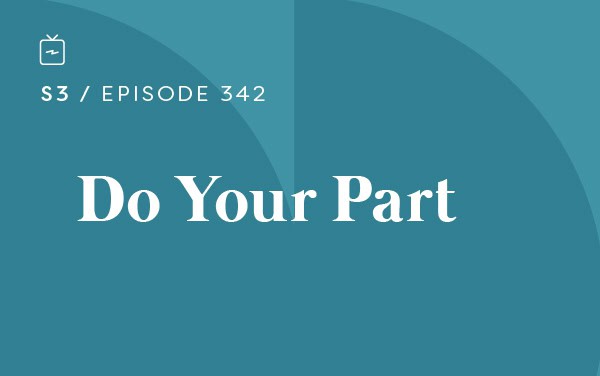
by Kris Oyen | Sep 6, 2021 | Podcast
Podcast: Play in new window | Download
Subscribe to the Recovery Elevator Podcast Apple Podcasts | | More
Episode 342 – Do Your Part
Today we have Michael. He is 43, from N. Georgia and took his last drink on January 1, 2020.
Registration for Costa Rica (January 15-23) is open. https://www.recoveryelevator.com/costarica/
Highlights from Paul
Paul discusses three elements that are critical to doing your part in recovery. Paul believes self-respect, self-love, and well-being are fundamental to healing. Doing the work is essential, and it eventually becomes embodied in your circuitry. Over time, we retrain the brain to stop self-harming with alcohol, pop tarts, and disrespect from others.
The state of our world reflects our lack of connection with ourselves, our planet, and our community. He believes a tipping point is upon us. We can help the world by fixing our internal environment, our inner pollution that results in external contamination – that is our part. The inner work (i.e., letting go of resentments) benefits others as well.
Exact Nature exactnature.com Code: RE20
[11:01] Michael took his last drink on January 1, 2020. He is from 43, married, and has two kids. He is a graphic designer and enjoys painting, drawing, playing music, and running.
Michael started drinking in high school. He drank to fit in and didn’t really like alcohol. He trained himself to drink. He used alcohol to celebrate, and it felt good. He now realizes he was trying to become somebody he wasn’t. In college, alcohol was everywhere, and he drank almost daily. Michael noticed early on his drinking was an issue.
Post-college, Michael didn’t want the party to stop. Free booze was a great excuse to overindulge. Alcohol and celebration went hand in hand for Michael. He began moderating when his children were about to be born. Over time, Michael continued to try moderation, and the voice in his head continued getting louder. He started looking at pictures from events he attended and realized there was no joy in his eyes because he wasn’t present for his own life. Accepting love was a real challenge for Michael. He quit drinking for an entire year but gradually returned to drinking. Michael now believes sobriety represents his authentic self, and that’s why he had to train himself to drink. Podcasts and the book “This Naked Mind” helped him understand addiction. Michael discovered Recovery Elevator, signed up and became part of the community.
Recovery is fantastic for Michael. He doesn’t need alcohol to be himself, confident, present, feel his feelings, true joy, true love, and his life is greater than he imagined it would be. He embraces his inner light and beauty as a human being. He loves his wife and his family and appreciates his RE tribe, who understand what it’s like to cope with addiction.
Michael talks to someone in recovery every day. He focuses on exercise, working the steps, and writing music to support his recovery.
Kris’ Summary
Kris spoke about learning the scientific reasons for addiction when he was in treatment. He needed to understand that addiction was about more than poor personal choices. Kris believes you can’t intellectualize your way out of addiction. Kris attended his first sober meet-up six weeks after he left treatment. He witnessed what ‘fun in sobriety’ looks like. A gathering of strangers came together to learn to live the life we were meant for can be fun and much more satisfying than addiction. The healing spirit is amazing. Shifting the energy we used to put into drinking toward a greater goal: personal growth, showing up for others and community. Kris appreciates everyone he has encountered in the RE community. I am here; I am whole. Feel it. Believe it!
Sponsor: Exact Nature exactnature.com Code: RE20
Upcoming events, retreats, and courses:
- https://www.recoveryelevator.com/costarica/
- You can find more information about our events
Resources
Connect with Cafe RE – Use the promo code OPPORTUNITY to waive the set-up fee.
Recovery Elevator YouTube – Subscribe here!
Sobriety Tracker iTunes







